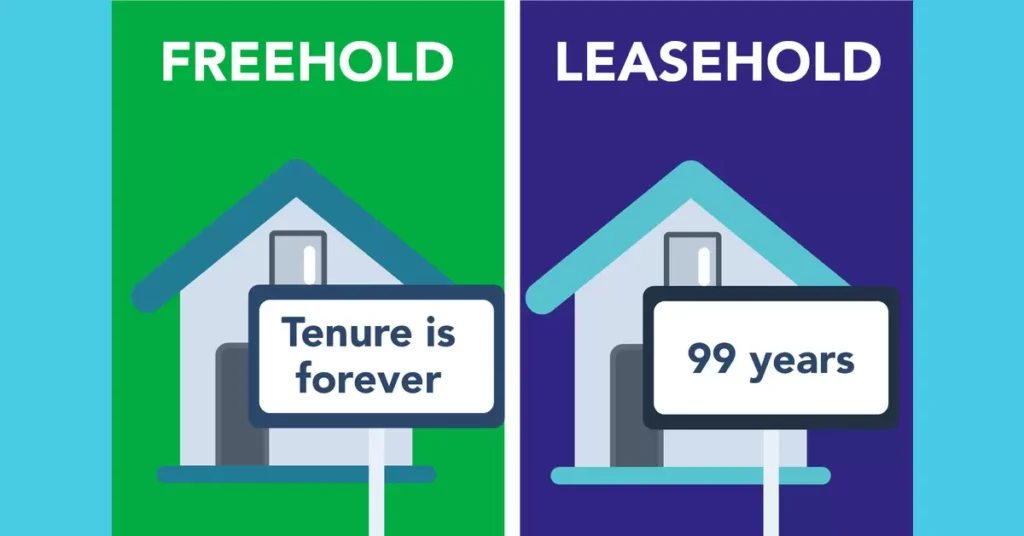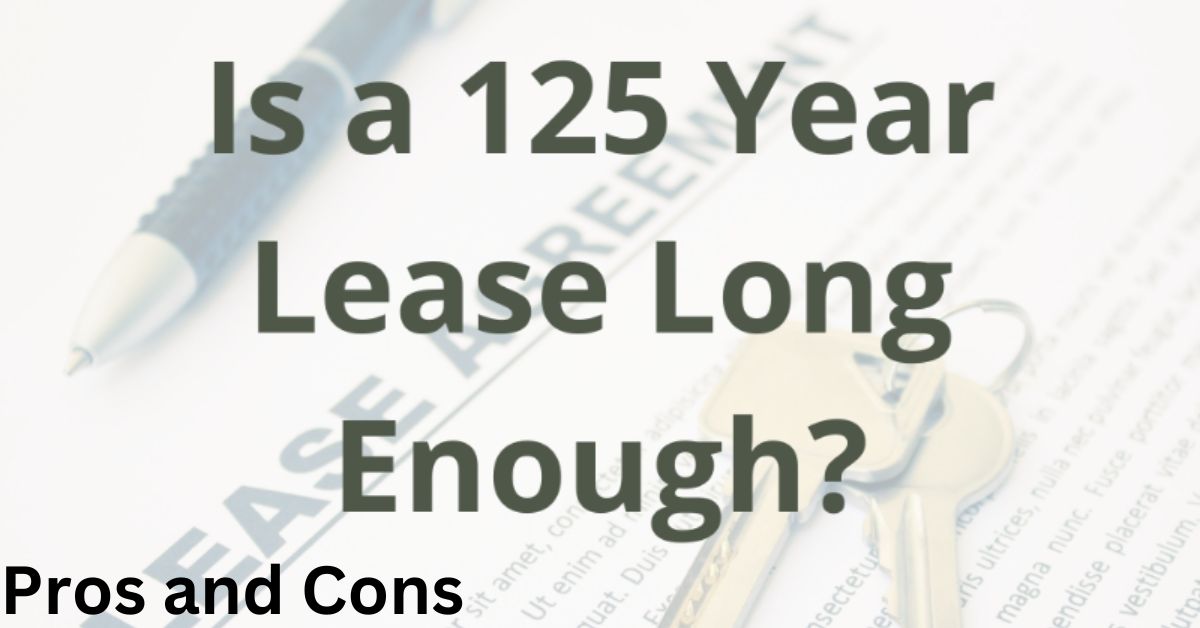When it comes to leasing property, the length of the lease term is a crucial consideration. A 125 year lease may seem like an incredibly long lease period, but is it truly long enough? This in-depth article explores the advantages and potential drawbacks of such an extended leasehold, helping you determine if it’s the right choice for your needs.
Advantages of a 125 Year Leasehold
One of the most significant benefits of a 125 year lease is the long leasing period it provides. Unlike shorter rental agreements that offer limited tenure, a 125 year lease can provide residential property owners with security spanning generations. This type of long lease essentially allows you to treat the property as your own for over a century.
During the leasing term, you often have the ability to renovate, develop, and make improvements to the property, just as you would if you had a freehold purchase. This flexibility can be particularly advantageous for commercial properties or those looking to customize their living spaces significantly.
Another advantage is that leasehold properties frequently come with lower upfront costs compared to outright freehold purchase. This can make leasing a more accessible option for those with limited capital or seeking to preserve funds for other investments.
It’s also important to note that many long leases include provisions for extension or renewal before expiration. This means that as the initial lease term nears its end, you may have the opportunity to extend your leasehold agreement, potentially providing even more long-term security.
As an example, consider a family that secured a 125 year lease on a prime piece of land in a desirable location. Over the decades, they’ve been able to develop the property to their liking, secure in the knowledge that their lease will remain in effect for generations to come. This long lease has allowed them to treat the property as their own while avoiding the higher costs associated with outright ownership.
Potential Downsides of Extended Leaseholds

While a 125 year lease offers significant advantages, there are also potential drawbacks to consider. One of the most significant is that at the end of the lease term, the land and any structures or improvements revert fully to the freeholder. This means that despite treating the property as your own for over a century, you ultimately have no ownership claim once the lease expires.
Furthermore, leasehold properties with less than 80 years remaining on the lease can become increasingly difficult to sell or mortgage. Lenders and buyers may be hesitant to invest in a property with such a limited remaining term, impacting its marketability and value.
It’s also important to factor in the potential costs associated with lease extensions. As the initial term nears its end, you may be required to pay significant fees to the freeholder to extend the lease. These costs can add up over time, eroding some of the initial savings realized through leasing rather than buying outright.
For example, one couple found themselves embroiled in a costly legal battle with their freeholder over the fees demanded for a lease extension. Despite having treated the property as their own for decades, they were ultimately forced to pay a significant sum to maintain their leasehold agreement.
Is 125 Years Truly “Long Enough”?
The question of whether a 125 year lease is truly long enough is a nuanced one, with differing perspectives based on individual circumstances. For some residential property owners, a 125 year term may indeed provide sufficient security and tenure for their needs. However, commercial tenants or those with specific long-term plans may find even this extended leasing period limiting.
It’s also important to consider how lenders view extended leases when it comes to financing. While some may be willing to provide mortgages on properties with long remaining lease terms, others may be more hesitant, potentially impacting your ability to secure favorable loans or refinance in the future.
Generational planning is another key factor to weigh. If you intend to pass the property down through multiple generations, a 125 year lease may not be sufficient, and exploring options for lease extensions or freehold purchase could be prudent.
There are also examples of families who found themselves in difficult situations after their 99 year leases expired, losing properties that had been in their families for decades. While a 125 year term provides more cushion, it’s essential to have a plan in place for when that lease nears its end.
Maximizing Your Leasehold Tenure

If you do opt for a long lease such as a 125 year term, there are steps you can take to maximize your tenure and protect your investment:
- Research local laws: Thoroughly investigate the laws and regulations surrounding lease extensions and renewals in your area. Understanding your rights and the processes involved can help you plan accordingly.
- Budget for future costs: While leasing may be more affordable upfront, be sure to factor in potential future costs like lease extension fees or legal expenses. Setting aside funds for these eventualities can prevent financial strain down the road.
- Utilize legal services: Engaging the services of a qualified leasehold preservationist or legal professional can help you navigate the complexities of your lease agreement, ensuring your interests are protected.
- Consider lifestyle factors: Ultimately, whether a 125 year lease is truly “long enough” depends on your specific goals and lifestyle plans. If you anticipate needing the property for a more extended period or plan to pass it down multiple generations, exploring freehold purchase options may be advisable.
One helpful exercise is to map out your anticipated tenure and that of any intended heirs or beneficiaries. This can help you visualize whether a 125 year lease term aligns with your long-term vision for the property.
| Lease Remaining | Considerations |
| 125+ years | Provides ample security for most residential needs |
| 100-125 years | May require planning for lease extension or freehold purchase if passing to multiple generations |
| 80-100 years | Could impact marketability and financing options |
| < 80 years | Likely difficult to sell or obtain favorable mortgage terms |
By carefully evaluating your specific circumstances and planning accordingly, you can determine if a 125 year lease truly meets your needs or if alternative arrangements may be more suitable.
Conclusion
In conclusion, a 125 year lease can indeed provide significant advantages in terms of long-term security, flexibility, and potentially lower upfront costs. However, it’s essential to weigh these benefits against the potential drawbacks, such as the eventual reversion of the property to the freeholder, challenges with marketability and financing as the lease term decreases, and the ongoing costs associated with lease extensions.
Ultimately, whether a 125 year lease is truly “long enough” depends on your specific goals, lifestyle plans, and financial situation. For some, the extended tenure and stability provided by such a long lease may be sufficient, while others may prefer the permanence of freehold purchase.
The key is to carefully research and understand the terms of your lease agreement, plan for future costs and eventualities, and objectively assess whether the leasing period aligns with your long-term vision for the property. By doing so, you can make an informed decision that maximizes the value and utility of your real estate investment, whether through leasing or outright ownership.
Remember, a little forethought and planning can go a long way in ensuring you make the most of your leasehold agreement, no matter the length of the term.

“Meet Alena Genefair, a seasoned finance expert with over five years of experience and the esteemed author behind FinanceHookup. With a wealth of knowledge in financial management, investment strategies, mortgages, and banking, Alena provides insightful perspectives to readers. Her expertise helps individuals navigate the complexities of personal finance with clarity and confidence.”



